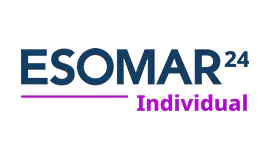Impact of Coronavirus (Covid-19) Pandemic on the Aerospace & Aviation Sector
The COVID-19 pandemic has plunged the global airline industry into unprecedented crises as airline service providers have witnessed a significant drop in airline bookings owing to travel restrictions imposed by governments and businesses to safeguard their consumers and workforce health. In commercial aviation, aircraft manufacturers and component providers are experiencing a disruption in production and slow consumer demand, owing to imposed travel restrictions, workers going home, and airline service providers deferring the delivery of new aircraft. The demand for aircraft components and spare parts is down, as fewer maintenance activities are required during this phase. Most of the commercial aircraft manufacturers are capital intensive by nature, thus raising short-term distresses about liquidity and cash flows.
The global pandemic situation prompted raw material providers to revise their 2020 production programs, investment projects, and collaboration/partnership activities. VSMPO-Avisma, Constellium SE, and Hexcel are some of the prominent raw material providers that have planned to reduce their production volumes by ~30% in 2020, owing to the spread of COVID-19. Furthermore, demand for new aircraft and aircraft repair plunged, and the customers of these raw material providers have almost suspended production capacity.
Commercial airline service providers are reducing their fleets, as these entities foresee to regain their steady passenger demand within a time period of 2-3 years. According to International Air Transport Association (IATA), the air traffic is anticipated to recapture its pre-crisis level by the middle of Q1 and Q2 of 2023.
Against this backdrop, the airlines service providers are pushing back their delivery schedules and are planning to phase out more maintenance-intensive aircraft in the coming years. For instance, Lufthansa Group has shown intent to reduce its 760- strong fleet by approximately 100 aircraft by 2023. The primary objective of these vendors is to operate their business operations at the same traffic volume, but with smaller and fuel-efficient fleets that are developed using advanced technology.
As the demand for aircrafts is reduced, the Maintenance, Repair & Overhaul (MRO) service providers have to deal with excess capacity, as the transition occurs from servicing legacy aircraft to new aircraft. However, the MRO service providers are dealing with cost-pressures, as they are providing support and maintenance to their customer’s old aircraft under renewed cost structure. MRO players with access to new technology fleets are expected to be in a better position and have the ability to ramp-up their operations speedily.
Aircraft engine manufacturers such as GE Aviation, UTC, and MTU Aero engines have temporarily suspended their engine production assembly lines. Furthermore, these aero-engine manufacturers are suspending discretionary spending on an immediate basis, which include discretionary engineering and development programs, new product/design development activity, and reducing their capital spending on manufacturing facilities.
Comparative Analysis - 1
Pre-Covid-19 Vs Post Covid-19 - Market Estimates, 2020 – 2021

Comparative Analysis - 2
Impact of Covid-19 - Comparative Analysis – Top Gainers Vs Top Losers
Marginal Growth
- Aircraft Technology Providers
High Gainers
- NA
Marginal Loss
- Aircraft Component Providers
High Losers
- Commercial Airlines
- Business Jets
- Aircraft MRO Service Providers
| COVID-19 Travel Restrictions Impact Analysis: | ||||
|---|---|---|---|---|
| Duration of Air Travel Restrictions | Period to Reach Normal Phase | Level of the "New Normal" | Deferred Aircraft Replacement Period | |
| Scenario 1 | 2-3 Months | Q4 (2020) | 90%-100% | 12-15 Months |
| Scenario 2 | 4-5 Months | Q1 (2021) | 80%-90% | 18-20 Months |
| Scenario 3 | 6- 12 Months | Q1 /Q2 (2023) | 75%-80% | 24 Months |

Senior Consultant Level 1 ICT Research

Senior Consultant ICT & Automotive Research
- Aircraft MRO service providers need to transform their business operations by adopting to new technology in order to withstand cost-pressures, as airline service providers, are making the transition from legacy aircraft to new advanced fuel-efficient aircraft
- Airline service providers need to focus on cash liquidity and to maintain it. Airline service providers need to focus on restructuring their short-term strategic plans in order to sustain in the market, as these entities were worst hit by the crises.






